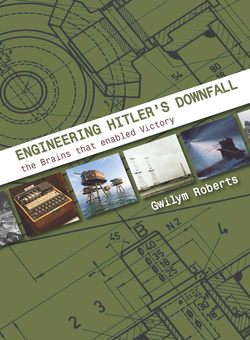Читать книгу Engineering Hitler's Downfall - Gwilym Roberts - Страница 21
На сайте Литреса книга снята с продажи.
A Penny for your Thoughts
ОглавлениеFollowing the precedent set after the First World War, at the end of the Second World War a Royal Commission on Awards to Inventors was established which considered applications from people who had made inventions that had been used during the war; 359 applications were considered.
Military personnel and civil servants who developed such equipment as part of their duties were excluded unless the inventions were ‘of such exceptional brilliance and utility that some award might nevertheless be justified’.
Among the cases which were deemed to be so exceptional were those of Sir Robert Watson-Watt who was awarded £50,000 for his invention of radar (a number of his colleagues were also recognised); Sir Donald Bailey, who was awarded £12,000 for his invention of the Bailey Bridge; and Air Commodore Sir Frank Whittle, who received £100,000 for his invention of the jet propulsion engine. To many this latter award seems a trifle odd as, brilliant and ultimately beneficial though the invention was, it came about too late to play a significant role before the end of hostilities. It was however explained by the Commission in a footnote: ‘Air Commodore Sir Frank Whittle was not in fact a claimant. The commission investigated the case at the special request of the Ministry of Supply in agreement with the Air Commodore and the Treasury.’
The fact that an applicant did not receive an award often meant that it did not comply with the guidelines, rather than it was not worthy of an award (a number of the engineers involved in designing the Mulberry harbours had their applications rejected).
In the first year of the war, when he was still attached to HMS Vernon and before DMWD had actually been established, Goodeve had conceived and developed the means of countering the magnetic mines that caused the loss of so many ships in the early months of the war (see Chapter 3).
The department was disbanded shortly after the end of the war, but a reunion dinner was held at Simpson’s in the Strand in May 1953. It was chaired by Goodeve, who by then had been knighted for his wartime services. The value and extent of their contribution to the war effort is reflected in the fact that Goodeve and four other members all received monetary awards from the Royal Commission on Awards to Inventors.
Details of some of the Department’s inventions are given in Appendix 4.
